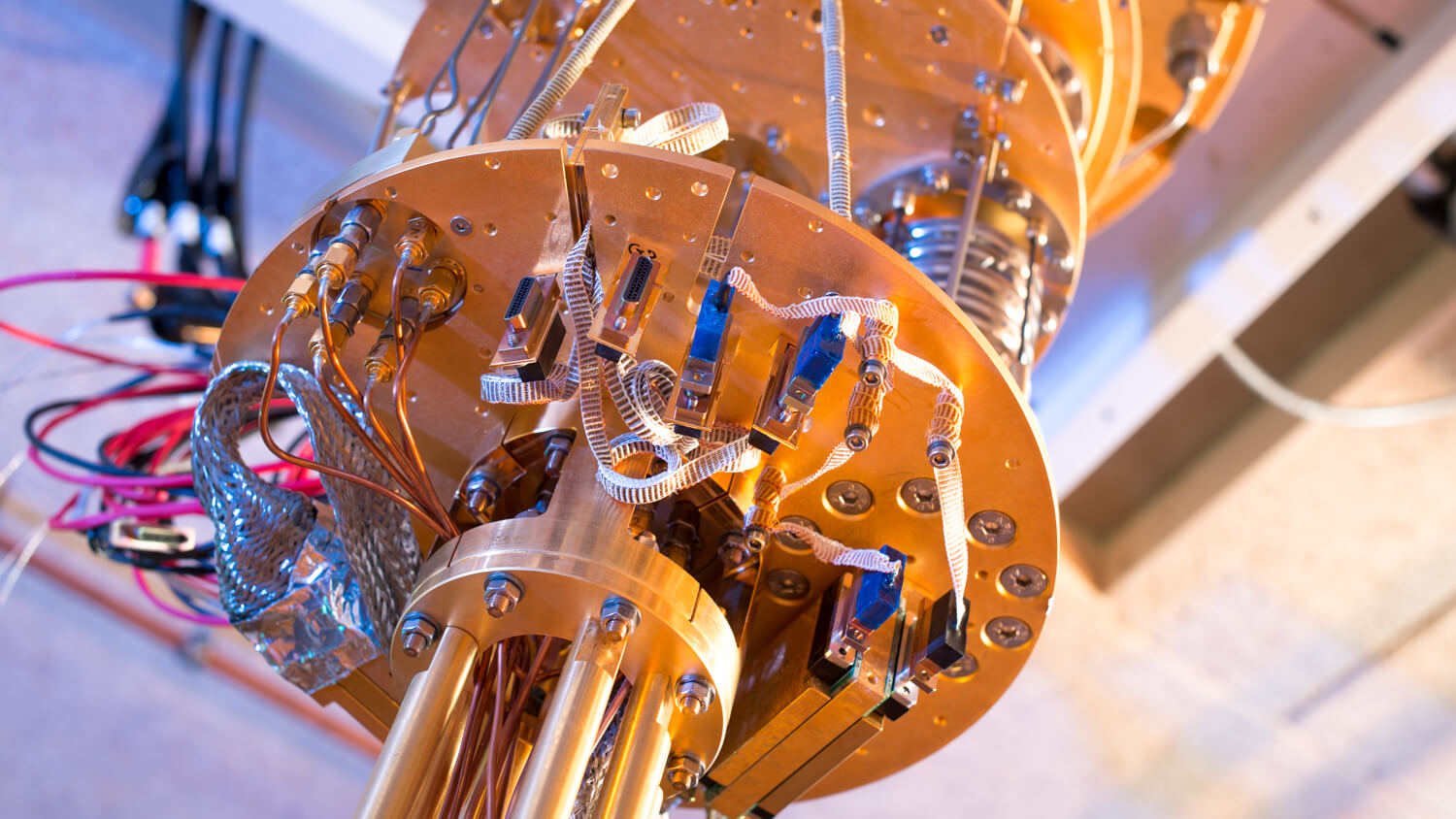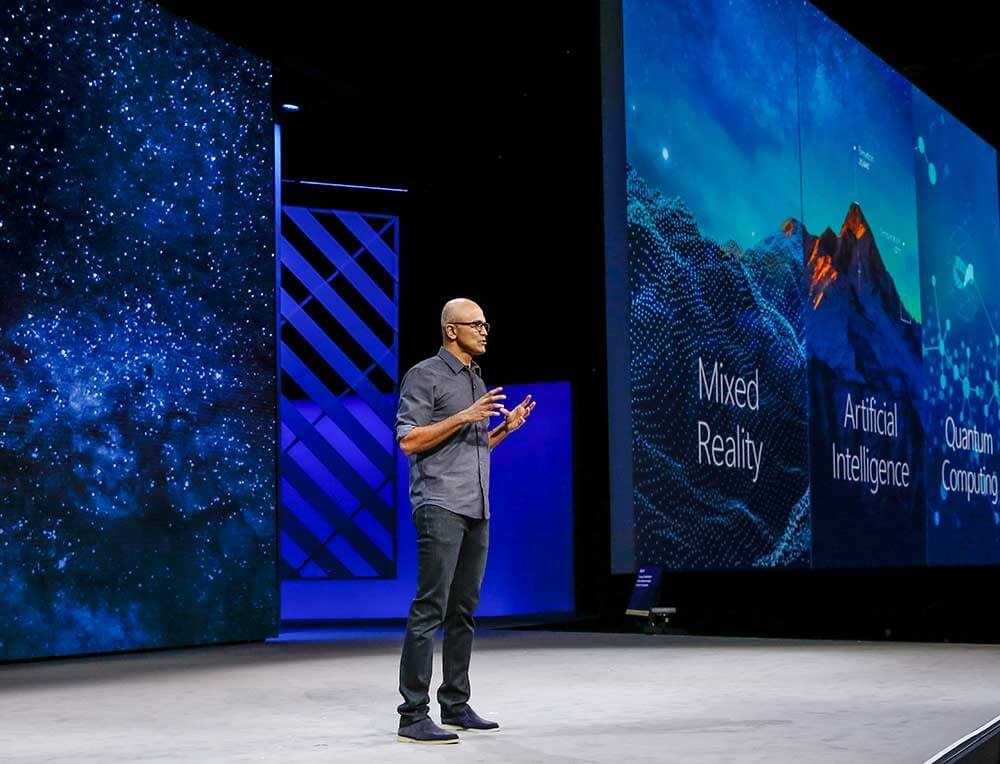
Sometimes, context and comparison can really make a difference. At the company’s combined Envision and Ignite events in Orlando this week for both business and IT professionals, Microsoft showed off its ability to reach the extremes of computing. It talked about both new low-end (sub-$300) Windows 10 S-based notebooks, as well as entirely new types of computing with a circuit board, prototype device, and programming language built for a functioning quantum computer.
On a practical level, the new Windows 10 S devices coming soon from HP, Lenovo, and Acer are probably a much better iteration of what 10 S-based computers should look like. Recall that Windows 10 S is a “simplified” or cleaned-up version of Windows 10 that can only run modern Windows 10 applications available from the Microsoft store, and was (until now) primarily targeted towards the education market. Specifically, the apps must comply with all the “rules” that Microsoft has defined for the most optimized performance and long-term stability on Windows.
Microsoft is targeting Windows 10 S at what it calls firstline workers—everyone from receptionists, to sales clerks, and 2 billion others who are often the people that first interact with a business’ customers on the front lines.
In theory, 10 S is a great idea that can rid the world of problematic applications, allow PCs to run faster and more consistently and, best of all, avoid the inevitable Windows “rot” that slows your computer down as you use it over a period of time. In reality, however, there are a lot of applications that don’t conform to all of Microsoft’s rules—especially in business environments, where custom applications are extremely common.
Not surprisingly, as a result, 10 S has seen relatively little adoption in the enterprise, even though Microsoft initially tried to drive a higher-end view of 10 S by installing it on the pricey Surface Laptop. With this week’s announcement, however, Microsoft is targeting Windows 10 S at what it calls firstline workers—everyone from receptionists, to sales clerks, and 2 billion others who are often the people that first interact with a business’ customers on the front lines. The argument is that many of these workers have more simplistic computing needs, so a less expensive, less powerful, and less flexible device will still be more than sufficient.

While it’s easy to pick apart some elements of Microsoft’s position, frankly, this is the same group of workers that companies who build and sell thin clients have successfully focused on for years. At least with these new Windows 10 S notebooks they get a mobile computer and local storage—two key detractors against thin clients. Plus, it comes at a price point that is actually cheaper than some desktop-only thin clients. Finally, and most importantly, one of the real distinguishing parts of this new offering is a low-cost version of Microsoft 365, which combines Microsoft’s Office 365 productivity applications, along with security and manageability services. Taken together, it’s a pretty compelling package that I think will finally bring some life and opportunity to Windows 10 S in business.
At the other extreme, Microsoft’s announcements on quantum computing were absolutely revolutionary. The company has chosen to follow the path of topological quantum computing—apparently, one of several options being researched around the world—and discussed an array of extremely complex math, physics, and computer science challenges coming together via a 12-year effort.
Microsoft described its efforts to turn mathematical theory into practical reality via a chip that can perform quantum calculations, a steampunk-looking computing device that operates at near absolute zero, and even a programming language.
Using a vocabulary that practically sounded like a foreign language—qubits, Majorana fermions, decoherence, etc.—the company described its efforts to turn mathematical theory into practical reality via a chip that can perform quantum calculations, a steampunk-looking computing device that operates at near absolute zero (the extreme cold is currently necessary to manipulate qubits), and even a programming language built into Microsoft’s Visual Basic programming environment that can create algorithms designed for quantum computing applications.
All told, it was an extremely impressive, though still confusing, discussion of where the next several decades of computing will likely be focused. To make it a bit more practical, the company even announced the ability to create quantum computing algorithms that, for now at least, can be simulated on the Azure cloud computing platform.
While Microsoft never made any comparisons between the low-cost Windows 10 S notebooks and quantum computing announcements, as an event attendee, you couldn’t help but notice how stark the difference was between them. Some might argue that the range was a bit too wide, but it reflects the breadth of Satya Nadella’s vision for Microsoft, and how the company has extended its idea of computing across an enormously broad spectrum of possibilities.
Bob O’Donnell is the founder and chief analyst of TECHnalysis Research, LLC a technology consulting and market research firm. You can follow him on Twitter @bobodtech. This article was originally published on Tech.pinions.
https://www.techspot.com/news/71139-opinion-microsoft-takes-computing-extremes.html